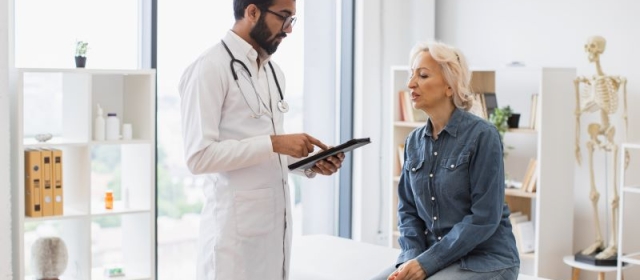
All News
Upcoming Events
The use of platelet-rich plasma for erectile dysfunction is a highly debated topic in sexual medicine. In this new video from the International Society for Sexual Medicine, experts in the field of sexual health explain their perspectives on using PRP for ED.

Infertility-related sexual dysfunction refers to the various ways in which the stress and emotional toll of infertility can impact a person’s sexual health and relationships. Infertility is generally defined as the inability to conceive after one year of regular, unprotected sexual intercourse. For many couples, this journey is fraught with emotional challenges, and these can extend into their sexual lives, leading to what is known as sexual dysfunction.

Non-monogamous relationships are becoming more visible and accepted in today’s society. These relationships, which differ from the traditional model of monogamy, encompass various structures and agreements that suit the diverse needs and desires of individuals. Understanding these different formats can help shed light on them and provide insights into how they can impact the people involved.

Happiness with one’s genitals and breasts may affect sexual performance and overall life quality. Men who are unhappy with their genitals often avoid certain sexual activities, and women with low genital satisfaction usually feel less satisfied with their appearance. Some may seek cosmetic surgery, but dissatisfaction often remains.
 (2)_medium.png)
Apply Today to Join an ISSM Committee of Your Choice!
We depend on our members to volunteer their time and expertise to carry out the mission and work of the society, and to keep moving the field of sexual medicine forward.
Membership in an active committee allows for greater recognition within the society, develops a network of other committee members and is a FAST-TRACK way to academic success. The relationships built within an active committee can be lifelong professional and personal friendships.
So, if you are looking to enrich your ISSM experience and contribute to the field of sexual medicine in a new and rewarding way, now is your chance! We are accepting applications for openings for members on the following committees:
- Conflict of Interest Committee; responsible for identifying potential Conflict of Interests and to advise the ISSM Leadership on any issue caused due to a Conflict of Interest.
- Communication Committee; dedicated to the optimal sharing of scientific information and news related to the field of sexual medicine among ISSM members. The committee is also tasked with providing state of the art information to the public through the official ISSM website, the ISSM Journals and Newsletters, and social media.
- Education Committee; to fulfill the needs of the members by making quality and diverse educational opportunities available to as many members of the association as possible. A specific obligation is to develop the ISSM University as a curriculum and guideline in sexual medicine that can be disseminated globally.
- Ethics Committee; to recommend and/or review proposed changes to the Code of Standards or to advice in cases ethical matters arise within the Society.
- Finance & Audit Committee; to ensure the preparation of the annual budget and financial statements of the Society, and will oversee the administration, collection, and disbursement of the financial resources of the organization.
- Global Outreach Committee; to advise the Board of Directors on how to improve knowledge and develop education activities on sexual medicine in developing countries. The activities will be planned based on a yearly budget prepared by the treasurer and approved by the EC.
- Grants & Prizes Committee; to review ISSM grants, scholarships and meeting prizes and make recommendations to the Board of Directors, based on a written and by the officers approved protocol for assessment and evaluation of grants and prizes.
- Membership Committee; works in partnership with the Board of Directors and Executive Office to develop and execute member recruitment and retention strategies and to provide advice regarding membership-related processes.
- Publication Committee; to oversee the development and production of ISSM’s publications, including the journals (JSM, SM, SMR, VJSM) and any other newsletters, guidelines, or documents. To provide direction to editors and the staff concerning format, schedule, market and distribution, etc. concerning these publications
- Scientific Review Committee; is responsible to develop systematic reviews on predefined topics and to select other editorial formats in key areas where research is still incipient.
- Young Researchers Committee; to make a meaningful and active platform within ISSM where young researchers will collaborate on research beneficial to ISSM and to create a network for young investigators within Sexual Medicine.
Applications will be accepted through Monday, October 15, 2024 at 11:59pm CST. Descriptions of the committees can be found through the following link: https://www.issm.info/about/committees
Eligibility
Membership on ISSM’s committees is open to all professionals with an interest in the field of human sexual medicine and science, holding current membership in ISSM. The intent is for the committee members to mirror the geographic diversity of the ISSM Membership.
Requirements to join an ISSM committee:
- Active ISSM member
- Have interests and skills that match the purpose and responsibilities of the committee
- Can commit to attending the committee meetings and carry out related tasks and project work
- Enthusiastic about working within international and cross cultural teams
- Previous volunteer experience with the ISSM or affiliated/related society committee(s) is beneficial but not a requirement
Term
The full term of all committees is two years, starting on January 1, 2025 and ending on December 31, 2026.
Apply
To be considered for committee service, please submit your application through this link,.
Only complete applications will be forwarded to the review committee for consideration.
If you are selected, ISSM will notify you in a formal invitation to serve.
The call will be open until October 15, 2024.
Post orgasmic illness syndrome describes a combination of symptoms that occur after ejaculation. In this video from the International Society for Sexual Medicine, an expert in the field of sexual health describes post orgasmic illness syndrome and how to treat it.

Long COVID, also known as post-acute sequelae of SARS-CoV-2 infection (PASC), is a condition where individuals experience persistent symptoms for weeks or even months after recovering from the acute phase of COVID-19. These lingering effects can impact various aspects of health, including sexual function. The following will explore how long COVID might affect one’s sexual function, explain the underlying mechanisms, and offer some practical advice for those dealing with these challenges.

It is well-established that a person’s mental health can have a significant impact on their sexual health. As such, mental health conditions such as depression and ADHD (Attention-Deficit/Hyperactivity Disorder) may be closely related to sexual health conditions like female orgasmic disorder, but the interplay among the conditions can sometimes be difficult to sort out.

Sexual health is an important aspect of overall well-being, influenced significantly by hormonal changes throughout various life stages. From puberty to menopause and beyond, hormonal fluctuations play a pivotal role in shaping sexual health and function. Understanding these changes can help individuals navigate the complexities of sexual health at different ages.

Introduction
Erectile dysfunction (ED) is the ongoing inability to get or keep an erection firm enough for sex. It affects up to 47% of men and becomes more common with age, increasing from 5% in men in their 40s to 15% in their 70s. Factors like high blood pressure, diabetes, smoking, alcohol use, obesity, and abnormal cholesterol levels contribute to ED and also to heart disease. Both conditions involve problems with blood vessels, making ED a potential early warning sign for heart disease.

During the transition to parenthood, new parents face numerous challenges, including sexual difficulties like reduced sexual desire, lubrication issues, and genitopelvic pain. Genitopelvic pain affects 8-10% of women generally but up to 45% of mothers six months postpartum. Factors such as pain before or during pregnancy, perineal trauma during childbirth, and breastfeeding can increase this pain.


